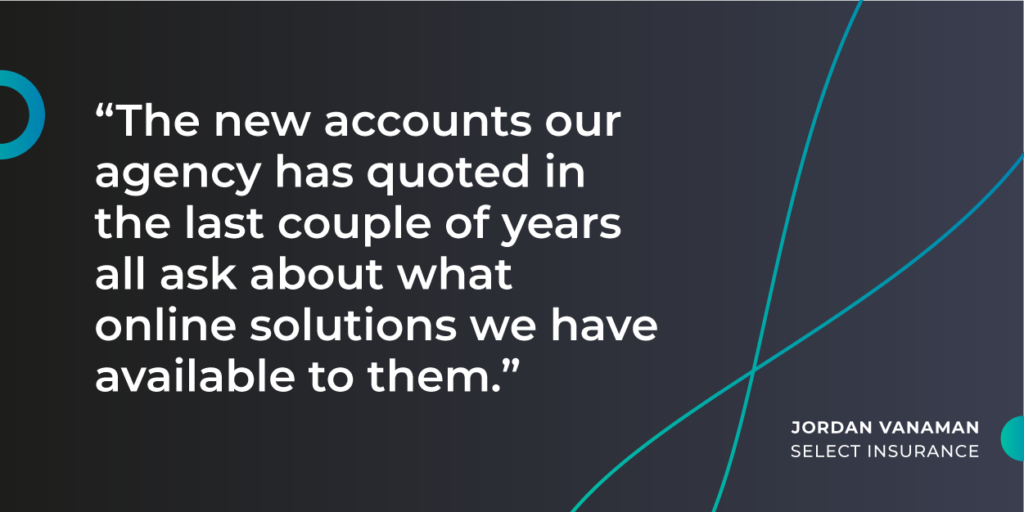If there’s one thing we can expect for healthcare benefits in 2023, it’s the unexpected.
Q4 2022 ended with inflation, increasing economic concerns, and healthcare costs that only continue to rise.
According to Mercer’s 2022 National Survey of Employer-Sponsored Health Plans, the average per-employee cost of employer-sponsored health insurance rose by 3.2% in 2022. This increase is actually quite low when compared to the general inflation rate of 8%; healthcare costs usually trend higher.
But ask any broker to explain to their client why a 3.2% cost increase isn’t necessarily a bad thing, and you won’t get an enthusiastic response.
Healthcare costs are projected to catch up to inflation. Projections range from 5.4% to 7.4%. Labor shortages, higher wages, inflation, and consolidation are all contributing factors behind rising healthcare cost projections. While employers may not have noticed the economy’s effects just yet, or may still be protected by multi-year contracts, the inflation-driven cost increases will be factored in during upcoming contract renewals.
Employers are nervous. They don’t know how much worse it’s going to get. They don’t know whether this year will bring (more) major layoffs or another talent war. They need guidance from their broker to remain competitive while managing budgets—and lowering healthcare costs remains top of mind.
Brokers need to start preparing today to efficiently and effectively address these concerns come renewal season.
To make sure they have the right plan, employers often need options—and with rising costs, they’ll need even more. Employers need their broker to be agile; to present plans they hadn’t considered before, new lines they haven’t offered, and to come prepared with innovative strategies to reach the company’s benefit goals without digging further into the pockets of companies and employees.
Fortunately, they have a trusted advisor to help them navigate all of these factors impacting their health benefits decisions. And yet most trusted advisors are relying on stitched-together spreadsheets and data that has been manually entered to create their presentation.
Employee benefits quotes in spreadsheets are often complex, confusing, and take many hours of manual work. Brokers don’t have the time to spend going back and forth 3, 4, or more times trying to get a plan right (let alone rebuilding and re-presenting the confusing spreadsheet every single time).
It’s costly for brokers to present multiple times to get a plan right. How costly? Keep reading.
“There’s got to be a better way.”
PerfectQuote Co-Founder and CEO Justin Sylvester knows the frustration of working in spreadsheets all too well from his days as a broker.
For just one renewal, Justin had already spent 18 hours on the road and 6 hours in client meetings—not to mention the 12+ hours the team spent building and rebuilding error-filled spreadsheets. All told, this one renewal took 90 hours.
Surely other brokers were having this problem, right? They were. And PerfectQuote was born.
The hidden costs of manual quote management
Sure, you’ve always sold and renewed clients this way. You have a system for hand-keying carrier data in place. Your team is already trained in the manual work behind the scenes.
But if you’re still quoting in spreadsheets like the story above, your company is suffering more than you know. In addition to being super frustrating (Justin’s story seemed way too familiar, didn’t it?), this process is losing your agency money.
Here’s how.
1. Data entry requires way too much valuable staff time.
The average agency spends 4–6 additional hours per client each year manually entering data for each client renewal (versus automating the task).
Let’s say your agency has 250 clients, 10 hours of data entry each, and the hourly wage of your account manager is $34. PerfectQuote’s clients report saving 4–6 hours per client on manual data entry! For the purpose of this example, we estimated that your agency could reduce the amount of time spent on manual data entry by 5 hours.
That’s an extra $42,500 wasted during every single renewal season just on data entry. This cost alone could pay for a modern, automated quoting system.

2. Errors are extremely expensive.
Mistakes can happen to even the most experienced teams, especially when you’re entering and re-entering data in a less-than-accessible spreadsheet. Multiply that across hundreds of employees and hundreds of clients, and the odds of an error increase exponentially.
Oh, and no pressure, but one small error could have major consequences for the client or the agency. Regulatory fines, lawsuits—these are what’s at stake when agencies gamble on manual data entry.
These high-cost data entry errors could look like:
- Incorrectly calculating a policy premium.
- Failing to make a timely requested policy change.
- Making an administrative error that costs a client money.
E&O violations may not be easy to find or not always enforced for health insurance brokers—but do you want to take that risk? All it takes is one denied claim to flag an investigation and risk fines or lawsuits. By switching from keying data into spreadsheets to an automated process, agencies significantly reduce the risk of committing errors.
3. Teams can’t be flexible if they’re busy entering data.
Given the lack of predictability in the economy, employers want options. They want to explore multiple avenues for offering employees great care at a low cost. They’re also worried about offering a competitive package for employee retention.
Every time a client asks for something you didn’t anticipate, you lose serious time—the team has to rebuild the spreadsheet, you have to reschedule meetings, and possibly drive back to present again. Hopefully, the client likes it this time, or you’re doing that all over again. That’s time that you could be spending with other clients.
Even worse, if you have to go back and rebuild a spreadsheet every time an employer wants to see another option, the employer will quickly become frustrated at the lack of agility and search for a broker who can offer custom, on-demand quotes.
There are a lot of insurance quoting systems out there, but the majority of them only do small group ACA. That’s great for one aspect of your business, but brokers need support for the more complex large group quoting.
And if brokers had a system for quoting large group, they would also need a system that can also pull in ancillary quotes. Once again, someone within the brokerage still has to manually pull quotes for dental, vision, etc., which effectively defeats the purpose of a quoting system.
Brokers need a solution that can handle all of these scenarios to best fit the client’s needs.
4. Long, manual processes will lose you business.
Many insurance agencies would love to grow their client roster, but the employee benefits market is saturated and competitive. As many companies modernize their technology, they are starting to expect more from their brokers. As one PerfectQuote customer said, “The new accounts our agency has quoted in the last couple of years all ask about what online solutions we have available to them.”
Employers are getting impatient with non-automated solutions. Everything else in their business has gone digital, from processing payroll to customer relationship management. So why is this major decision handled in such an archaic way?
Employers have enough going on at the end of the year; they don’t want to go through a long and confusing quoting process. Today’s employers expect more—and they want a broker who can deliver.

The solution: real-time insurance quoting software
With so many unknowns ahead, it’s clear that the old way of quoting is not suited to the needs of today’s modern client.
Brokers must be able to quote on demand and be ready to present accurate numbers in response to the client’s needs. If a client shares their concerns and your response is, “Let me take it back to my team and prepare a new spreadsheet”? That’s not going to cut it for much longer.
PerfectQuote was born from this frustration. Our dynamic health benefits quoting platform helps you sell and renew faster.
How fast? PerfectQuote agencies report reducing renewal time by 50–75%. Just the time saved on data entry alone could literally give your business back years. One national agency was spending 9–10 hours per client on manual spreadsheet work. With PerfectQuote, it’s 8 minutes.
What could your agency do with all of those hours of free time?
- Invest even more in client relationships
- Expand your book of business
- Explore new value-added products and services
- Implement new retention activities
- Achieve work/life balance (That’s possible, right??)
- And a lot more…
It’s time to say goodbye to the old way of quoting health benefits.
“PerfectQuote is a user-friendly quoting tool that makes quoting across multiple carriers with multiple plans a breeze. The quote scanning for ancillary and large group is also a huge help. Not sure how we would have gotten through fourth quarter without this tool.”
— PerfectQuote customer


